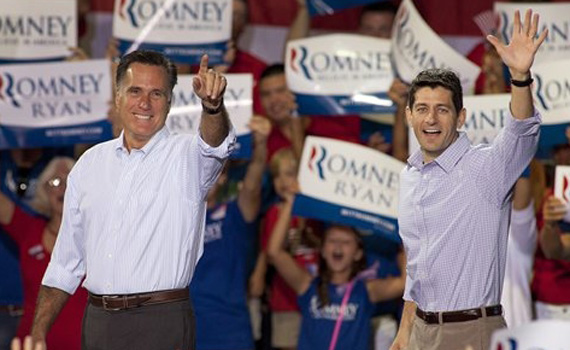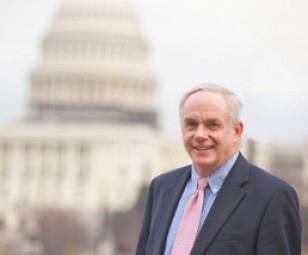
President Barack Obama’s campaign for re-election goes into high gear this week at the Democratic Party convention in Charlotte, North Carolina. He is shown here leaving the White House for a campaign event Sept. 4. Photo: AP
But Can They Keep the White House?
After a week at the Republican convention in Tampa, Florida, the Democratic Party encampment here in Charlotte, North Carolina seems like another world.
On Monday, the party held a kind of giant street party downtown, complete with musical acts, yoga demonstrations and play areas for kids. And of course, it wouldn’t be a Democratic Convention without booths for union representatives and health care advocates also set up along the way.
One guy hawking memorabilia about President Barack Obama says he sold more items in two hours on the first day in Charlotte than he did all last week near the Republican conclave in Tampa. But then who had the bright idea to try and sell Obama stuff to the Republicans?
Democrats Seem Upbeat
At least the Democrats are putting on a good face. The public opinion polls continue to show a very tight race, though I think everyone is still waiting to see just how much of a bounce, if any, Republican presidential candidate Mitt Romney and his crew got from the party’s convention in Tampa.
The Democratic delegates I’ve talked to here in Charlotte seem fairly confident, including one guy in West Virginia. He says the president has gained five points on Mr. Romney in the past few weeks. Too bad he’s still 14 points behind in West Virginia! Beware over-exuberant delegates, my friends.
They Are Sure Are Nice Here
Everybody is struck by how polite and solicitous the locals are here in North Carolina. Delegates from across the country are strolling into the welcome arms of southern charm all over “the Queen City,” and getting quite a kick out of it. Of course, some of us from the northeast aren’t used to people saying, “Good morning” and “How are you doing?” at every turn, but it beats the alternative.
The people of North Carolina do seem proud to be hosting this event and anxious to put on the best possible show. So far, the only thing that seems to be dampening spirits are the reliable afternoon thunderstorms that send delegates and media scurrying for cover. So what happens if it pours Thursday night when President Obama delivers his acceptance speech outdoors in the local football stadium? Doppler weather radars will be active and fingers will be crossed.
Waiting for Mr. Obama
Four years ago, Democrats walked or were bussed to a football stadium in Denver in the climactic act of the 2008 Democratic convention, Mr. Obama’s speech accepting the party’s presidential nomination. Like a scene from the Bible, party faithful lined up for hours waiting to go in and listen to “The One.” Well, “The One” is back this year and needs their support again, but the luster is off just a bit, even with Democrats.

Secretary of State Hillary Clinton, pictured here during a visit to Indonesia Sept. 4, is being mentioned as a possible Democratic presidential candidate in 2016. Photo: AP
Many I’ve talked to want to hear a cogent defense of the past four years and, more importantly, a clear road map as to where Mr. Obama wants to take the country over the next four years, especially when it comes to jobs and the economy. Democrats know that a good speech from the president would help him a lot in November and could get his supporters re-energized for the upcoming campaign.
Democrats are confident but also curious: what will Mr. Obama say to those who were so invested in him four years ago but who now feel a sense of disappointment? They want to be inspired again, even though it won’t be like 2008. I get the sense they know nothing will be like 2008 ever again.
Looking Ahead (already) to 2016
No matter what happens in the balloting on November 6th, Democrats will be in the market for a new crop of presidential contenders four years from now. But that group could easily include previous candidates like Vice President Joe Biden and especially Secretary of State Hillary Clinton.

Vice President Joe Biden also may be pointing to a presidential run in 2016. He is shown here campaigning in Green Bay, Wisconsin Sept. 2. Photo: AP
Fifty percent of the delegates at this year’s convention are women and they remain solidly behind President Obama. Many, however, remain big fans of Hillary Clinton and would jump in line to support her in a nanosecond if she decides to run in 2016.
Still, four years is a long way off and some of the younger Democratic White House aspirants will get their moment in the spotlight this week. Among them are Maryland Governor Martin O’Malley, New York Governor Andrew Cuomo and Mayor Cory Booker of Newark, New Jersey, who some Democrats hope might turn out to be “the next Obama.”
Just as the Republicans did in Tampa, a subtext in Charlotte this week will be the auditioning of a new generation of future Democratic leaders. For many of them, this will be their first shot at national exposure.
After all, we are only eight years removed from the Democratic keynote speaker of the 2004 convention, an obscure state senator from Illinois with the unusual name of Barack Obama.




























